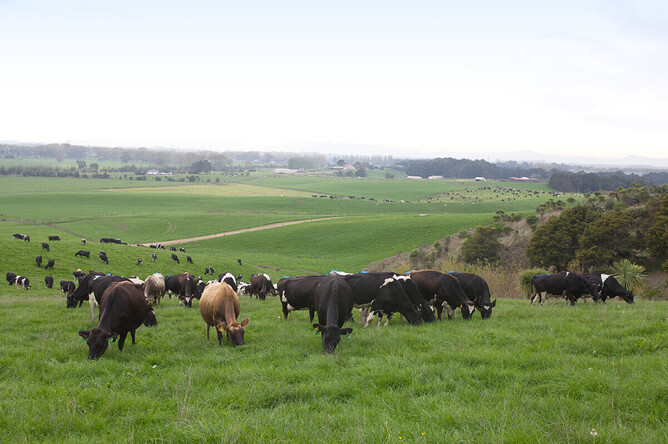Phosphates are a vital element for all living things including plants. But it can be difficult getting sufficient phosphate to plants without wastage to the soil or waterways.
One solution is to choose a phosphate fertiliser that can mitigate these issues.
Types
There are several types of phosphate fertilisers. Two examples are ‘Super’, also known as superphosphate, or monocalcium phosphate, and ‘Dical’, or dicalcium phosphate. Most farmers and growers will have experience with the former, although perhaps not with the latter.
The main chemical difference between these two fertilisers is the amount of calcium in the phosphate molecule. Super has one calcium ion attached, while Dical has two.
The result is the two fertilisers behave differently in the soil.
Solubility
One of the differences between Super and Dical is their solubility.
Super is highly soluble. While this means the phosphate is immediately available to the plant as soon as it is applied, it also means the phosphate is prone to loss and wastage should adverse weather occur soon after application.
Dical, on the other hand, is not soluble. Although it is easily broken down for the plant to take up, it is not susceptible to the same degree of loss and wastage – no matter the weather conditions.
Acidity
Another distinction between Super and Dical relates to the acidity they create in the soil, especially acidity around the individual phosphate granules.
When Super is applied, it can cause the zone around the phosphate granules to become very acidic, as it has a pH of 2.
This high acidity encourages the phosphate ions to bond strongly with other ions in the soil such as Al (aluminium) and Fe (iron).
This is a problem because the phosphate is then ‘locked up’ or fixed, and plant roots can no longer access it when they need it.
However, with Dical, which has a much higher pH of 4.5 to 6.2, soil fixation is far less likely because the zone around the phosphate granule is far less acidic.
So, the phosphates in Dical are still available to plant roots, and there is less wastage of nutrients.
Fixation and soil type
Because the phosphates in Dical are less prone to fixation, it’s the ideal fertiliser for certain soils.
These soils are known for their capacity to bind their phosphates with Al and Fe ions.
This information can be found on most soil tests as ASC, or Anion Storage Capacity.
Allophanic soils, known as ash or volcanic soils, bind strongly, so have a high ASC reading. According to Landcare Research, allophanic soils are mostly found in the volcanic ash and weathered volcanic rock in the North Island, and are common in parts of the Waikato and Taranaki, and also found in the King Country and Bay of Plenty – see Landcare Research’s ‘Soils Portal’.
Sedimentary soils also bind Al and Fe ions but less strongly, so have a low-medium ASC score. Landcare Research maps show these soil types are found throughout New Zealand, particularly in the Taranaki and Manawatū regions.
So, for those of us who farm these types of soils, a phosphate fertiliser like Dical that releases its nutrients more slowly with minimal fixation can be the perfect option.
Dical avoids wastage
Given there is less nutrient wastage with Dical, it follows that less can be applied. As a rule of thumb, 25 to 30 per cent less Dical compared to typically-recommended rates for Super can be applied on allophanic and sedimentary soils. That’s not only avoiding nutrient wastage, but saving you money.
This article was published in the Coast & Country News.

